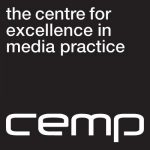Prof. Julian McDougll, Head of CEMP was invited to Brussels to give a talk in the Network of Experts on the Social Dimension of Education and Training (NESET II) and the European Expert Network on Economics of Education (EENEE) on 22 November 2018. This is the 3rd annual conference organized by the European Commission, which is a major annual event aiming to encourage broader dialogue between policy makers at the EU and national levels and researchers, offering a fertile ground for information exchange.
The 2018 Conference focused on the topic of common European values, active citizenship and key competences. In particular, there is a need to further strengthen the promotion of common European values through education. This conference was oriented towards solutions and practices that demonstrated value and worked well for different levels of education.
As an established and pioneer researcher and educationist in media literacy, Prof. Julian McDougall and CEMP doctoral graduate Marketa Zezulkova were commissioned by the European Commission to produce a systematic review “Teaching media literacy in Europe: evidence of effective school practices in primary and secondary education”. This report detailed the latest research in the area of media literacy and media education and provided policty recommendations to the European Commission from four aspects:
- Main competences to support media literacy in education: which should cover the competences of Access, Analysis and evaluation, Creation, Reflection and Action/agency. These competences work together to support students’ active participation in learning through the processes of consuming and creating media messages.
- Media literacy education practices to address disinformation: The current media landscape has been marked by the spread of disinformation and ‘fake news’. Media literacy initiatives, including educational programmes involving journalists, have been shown to lessen the vulnerability of children to disinformation.
- Effective teaching and learning media literacy practices at school level: which can involve various classroom-based methods (e.g. active inquiry, discussion-based learning, collaborative learning and educational leadership, game-based learning, etc.), most of which are based on active learning. Medium or genre specific pedagogical practices are commonly used in teaching and learning with media literacy (e.g. combined advertising and science literacies).
- Key conditions for successful implementation of media literacy education practices in school: which is facilitated by approaches to pedagogy that combine and/or cross boundaries between spaces and roles — the classroom and the extended ‘third space’, teachers and students working in partnership to co-create learning, and professional development in hybrid combinations of physical and virtual networks.
The report ends with policy pointers for the European Commission. Based on the consolidated evidence on the ways in which media literacy can be taught, Professor Julian McDougall made suggestions to the European Commission on the best approaches to providing holisticsupport and resources to media education in the Europe.
This report has been accepted by EU and will be published online shortly:
McDougall, J., Zezulková, M., van Driel, B., Sternadel, D. (2018), ‘Teaching media literacy in Europe: evidence of effective school practices in primary and secondary education’, NESET II report. Luxembourg: Publications Office of the European Union.
The report also cites a mumber of other CEMP projects and publications on media literacy education, including research for the United Kingdom Literacy Association, Media Education Association, Samsumg and the US Embassy – for more information on these see https://www.cemp.ac.uk/projects/projects.php
*More information ABOUT NESET II
NESET II is an advisory network of experts working on the social dimension of education and training. The European Commission’s Directorate-General for Education and Culture initiated the establishment of the network as the successor to NESSE (2007-2010) and NESET (2011-2014). The Public Policy and Management Institute (PPMI) is responsible for the administration of the NESET II network.
 Fake News vs Media Literacy: CEMP research event at Olympic Park, London
Fake News vs Media Literacy: CEMP research event at Olympic Park, London










 No access to BRIAN 5-6th February
No access to BRIAN 5-6th February Missing Persons Indicator Project Recruitment
Missing Persons Indicator Project Recruitment Celebrating our Research: Postgraduate Research Showcase 2026
Celebrating our Research: Postgraduate Research Showcase 2026 Nursing Research REF Impact in Nepal
Nursing Research REF Impact in Nepal Fourth INRC Symposium: From Clinical Applications to Neuro-Inspired Computation
Fourth INRC Symposium: From Clinical Applications to Neuro-Inspired Computation ESRC Festival of Social Science 2025 – Reflecting back and looking ahead to 2026
ESRC Festival of Social Science 2025 – Reflecting back and looking ahead to 2026 ECR Funding Open Call: Research Culture & Community Grant – Apply now
ECR Funding Open Call: Research Culture & Community Grant – Apply now MSCA Postdoctoral Fellowships 2025 Call
MSCA Postdoctoral Fellowships 2025 Call ERC Advanced Grant 2025 Webinar
ERC Advanced Grant 2025 Webinar Update on UKRO services
Update on UKRO services European research project exploring use of ‘virtual twins’ to better manage metabolic associated fatty liver disease
European research project exploring use of ‘virtual twins’ to better manage metabolic associated fatty liver disease